Feeding the Future: How IFANCA’s Halal Food Conference Is Shaping a More Ethical, Inclusive, and Sustainable World
Muhammad Ali Bandial
In an increasingly fractured global landscape, where conflict, climate change, and chronic illness are reshaping the way we live, one question has become impossible to ignore: What does it mean to eat well in the 21st century? For the Islamic Food and Nutrition Council of America (IFANCA®), the answer is clear: halal is not simply about dietary restriction but about dignity, discipline, sustainability, and shared humanity.
These ethos and vision were front and centre at IFANCA’s 22nd International Halal Food Conference, held from April 14–15, 2025, at the Hyatt Regency O’Hare in Chicago. Under the theme “Navigating Change Together: Connecting the Global Halal Community,” the gathering brought together scholars, regulators, scientists, and industry leaders from over ten countries. What unfolded was more than a technical exchange about certification standards; it was a call to reimagine the global food economy through an ethical lens grounded in faith, justice, and cooperation.
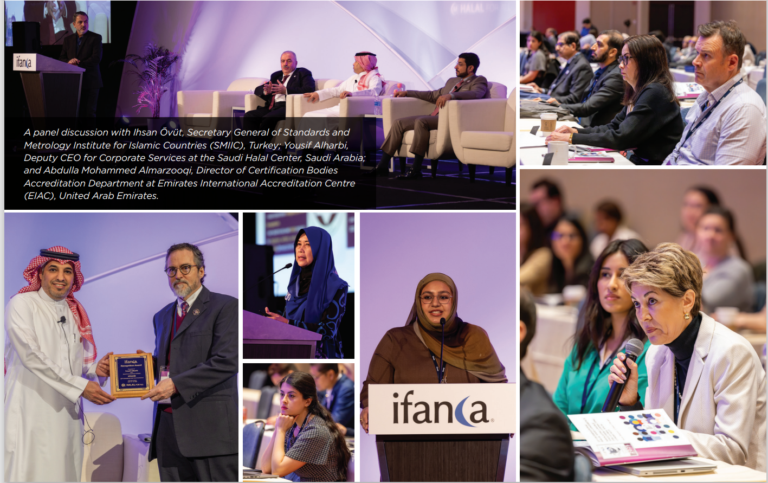
Summing up about the importance of the conference, Dr. Muhammad Munir Chaudry, President and CEO of IFANCA, noted:
“This conference is not just a platform for dialogue but a collaborative engine to shape the future of the Halal industry. Our mission at IFANCA is to ensure Halal integrity while fostering global cooperation.”—Dr. Muhammad Munir Chaudry, President and CEO of IFANCA.
From Shared Plates to Shared Purpose
One of the most stirring moments of the conference came during Shaykh Hamza Yusuf’s keynote address, which wove together prophetic teachings, personal reflection, and global challenges. He began with a reminder from the Prophet Muhammad (peace be upon him) that encapsulated the theme of sharing: “The most beloved dish to God is the one with the most hands in it” (Sunan ibn Majah 3272). The act of eating, said Shaykh Hamza, has always been a communal ritual in Islamic culture that fosters mindfulness, humility, and presence.
In modern life, however, food has lost much of its meaning. With business lunches replacing shared meals and eating on the go, in isolation or haste, becoming the accepted norm, he said, humans faced a growing disconnect between our consumption habits and our spiritual, physical, and ecological well-being. But it wasn’t anything that couldn’t be reversed simply by holding onto our traditional Muslim practices.
From communal eating, the talk shifted naturally to the ethics of consumption. Shaykh Hamza pointed to the Qur’anic injunction, “Eat and drink, but not to excess” (Qur’an 7:31), as a timeless guide in an age of rampant overconsumption and chronic disease. Citing the rise in obesity, diabetes, and inflammation-related illnesses, he emphasized that the crisis isn’t simply about what we eat but how much and how mindlessly we consume. He praised Islamic practices like voluntary fasting, which were long recognized for promoting self-discipline and are now gaining traction in secular health circles through concepts like intermittent fasting.
“We know how much food the average person needs,” he said. “But we lack self-restraint. That’s a spiritual crisis, not just a dietary one.”
The Global Halal Economy: Ethical and Expanding
That ethical framing echoed throughout the two-day conference. With delegates from Indonesia’s BPJPH, Malaysia’s JAKIM, Saudi Arabia’s SFDA, Turkey’s SMIIC, the UAE’s Emirates International Accreditation Center (EIAC), Singapore’s Majlis Ugama Islam Singapura (MUIS), Thailand’s CICOT, and others in attendance, the agenda covered everything from global standardization and laboratory testing to market development and food innovation. Speakers stressed the importance of science-based certification and global regulatory alignment to protect the integrity of halal systems in a rapidly evolving marketplace.
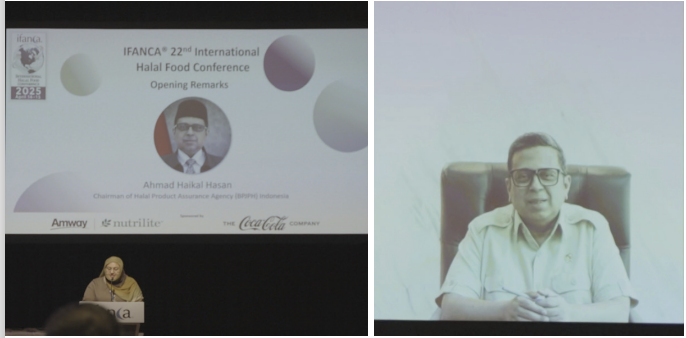
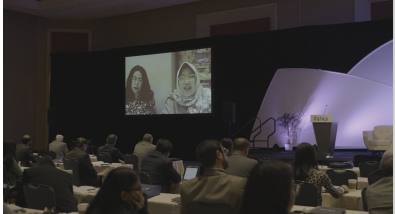
Keynote speaker Rafi-uddin Shikoh, CEO of DinarStandard, drove home the economic case: the halal market, representing 2 billion consumers and nearly 20% of global spending, is no longer niche. “If you haven’t considered producing for these markets,” he said, “then a large opportunity is missed.” But more than numbers, Shikoh spoke of a broader shift, one where the halal ethical economy contributes to a new, multipolar world order grounded in values like transparency, sustainability, animal welfare, and fair trade.
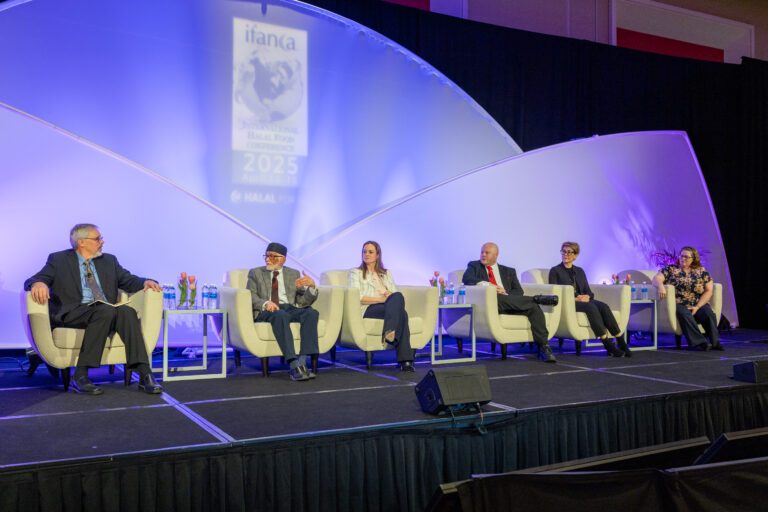
Laura LaCourse, representing The Coca Cola Company, highlighted the importance of the gathering:
“We truly value the partnership with IFANCA. We need these programs. It is hard to bring everyone from industry, dignitaries from all around the world, and the real community together—bringing this group together is important.”—Laura LaCourse, Director
of Flavor Regulatory, The Coca Cola Company.
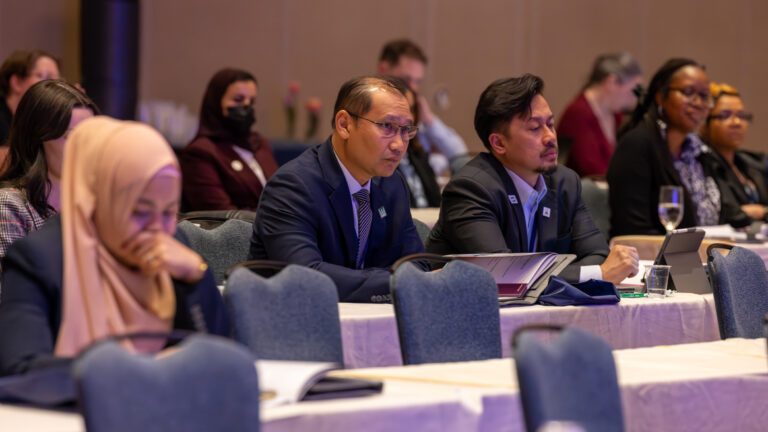
The conference’s Banquet & Awards Night on April 13, 2025, served as both a celebration and a symbol of this growing momentum. Companies and individuals were recognized for their leadership in halal-certified innovation. The event, held in the Grand Ballroom of the Hyatt Regency, showcased not just the diversity of the halal food sector but the shared values that drive it.
Food, Faith, and the Fragile Future
Shaykh Hamza’s closing reflections circled back to food not just as fuel or commerce but as a symbol of what binds and breaks us as a species. He warned of the environmental costs of our current path: polluted soil, acidic oceans, and dying bees, creatures so vital to food systems that their collapse threatens global agriculture. “There’s a chapter in the Qur’an called ‘The Bees,'” he said. “That’s not accidental. They are essential, and we are failing them.”
He called for scientific focus to shift from warfare to food systems, for soil to be seen as sacred, and for the Earth to be treated not as a commodity, but as a trust from God.
A Movement Rooted in Meaning
As halal continues to mainstream global trade and public policy, IFANCA’s role has never been more critical. With decades of experience and credibility across 70+ countries, the organization has become a linchpin for halal compliance in food and pharmaceuticals, cosmetics, and institutional food systems. Whether it’s guiding public school districts like Chicago’s or advancing food justice through programs like the Faith by Plate Act in Illinois, where IFANCA supported the Muslim Civic Coalition in moving the legislation forward, IFANCA is setting the gold standard for faith-based inclusion.
“We are deeply committed to advancing food security and equitable access for children, schools, and underserved communities,” says Asma Ahad, Director of Halal Market Development at IFANCA. “Proper nutrition is what enables our future generations to thrive.”
At a time when food insecurity, environmental degradation, and social fragmentation dominate the headlines, the halal framework offers a refreshing, holistic approach. It isn’t just about what’s on your plate, it’s about who you share it with, how it got there, and how you treat the Earth that produced it.
In the end, it was Shaykh Hamza who put it best, “Whoever wakes up healthy, safe, and with enough food for the day, it is as if they own the whole world.”
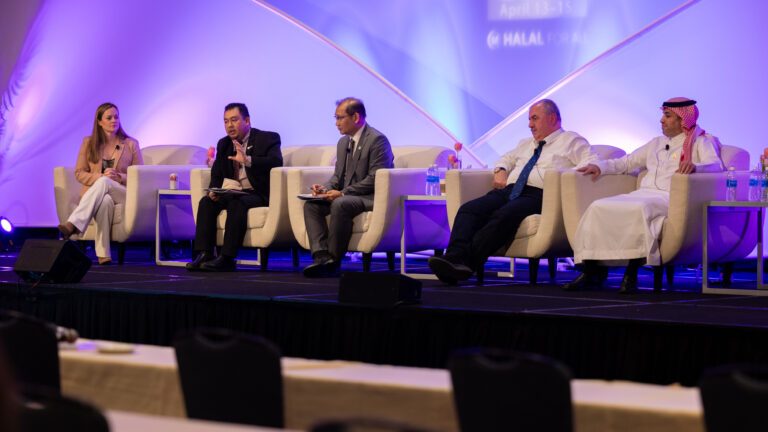
Muhamamd Ali Bandial is a writer and editor at Salaam Gateway. This article first appeared on https://salaamgateway.com.